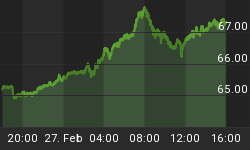Three things are certain: death, taxes, and that the already thin gap between human trader and algo is narrowing ever further.
AllianceBernstein's new virtual assistant can now suggest to fixed income portfolio managers what the best bonds may be to purchase using parameters such as pricing, liquidity and risk, according to Bloomberg. The machine has numerous advantages to humans: "she" can scan millions of data points and identify potential trades in seconds. Plus she never needs to take a cigarette or a bathroom break.
The new virtual assistant, dubbed Skynet 2.0 "Abbie 2.0", specializes in identifying bonds that human portfolio managers have missed. She can also help spot human errors and communicate with similar bots like herself at other firms to arrange trades, making humans redundant. This is the second iteration of AllianceBernstein‘s electronic assistant which debuted in January of this year, but could only build orders for bonds following precise input from humans.
Sourcing bonds that are easy to trade is done by Abbie 2.0 reaching out to another AB system called ALFA, which stands for Automated Liquidity Filtering and Analytics. The AFLA system gathers bids and asks from dealers and electronic trading venues to work out the best possible trades.
For now, humans are still required: Jeff Skoglund, chief operating officer of fixed income at AB told Bloomberg that "humans and machines will need to work closer than ever to find liquidity, trade faster and handle risks. Our hope is that we grow and use people in ways that are more efficient and better leverage their skills."
What he really means is that his hope is to fire as many expensive traders and PMs as possible to fatten the company's profit margins. Which is why the virtual assistant already helps support a majority, or more than 60 percent of AllianceBernstein‘s fixed income trades. The "upgrades" that are coming for the new assistant will help it include high-yielding investment grade bonds, before expanding to other more complex markets in the coming months. AB says that they will still rely on humans to make the final decisions on trades. For now. Related: IBM Launchs Global Payments System With New Stablecoin
While the original version of the assistant had to be told how much a portfolio manager wanted of a specific bond, the new version now mines data pools to be proactive, making sizing suggestions to portfolio managers. Among other things, the assistant looks at ratings of companies, capital structure and macro data such as social and geopolitical risks.
This is just another step in the industry becoming machine oriented in order to help cut costs, save time and avoid errors, especially in relatively illiquid bond markets. Liquidity could become even more of a factor if the economy slips into recession over the next couple of years.
Electronic trading in general is becoming more pronounced in fixed income as banks act more like exchanges instead of holding bonds on their balance sheet. All the while, regulations have encouraged the shifting of bond trading to exchanges. More than 80 percent of investors in high-grade bonds use electronic platforms, accounting for 20 percent of volume, according to Bloomberg.
Skoglund concluded, "We expect to be faster to market and capture opportunities we otherwise would not have caught by using this system. There’s a liquidity problem right now that could become significantly more challenging in a risk-off environment."
By Zerohedge
More Top Reads From Safehaven.com:
















